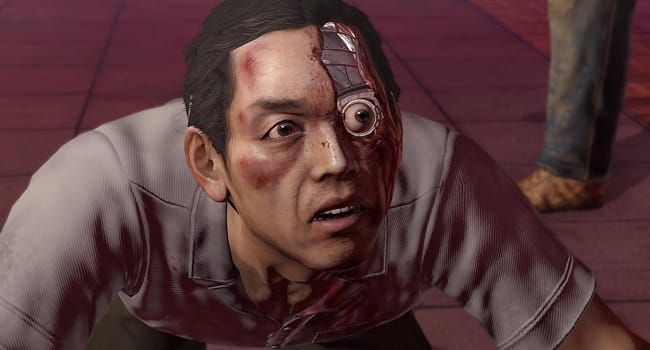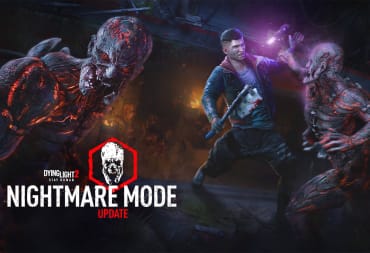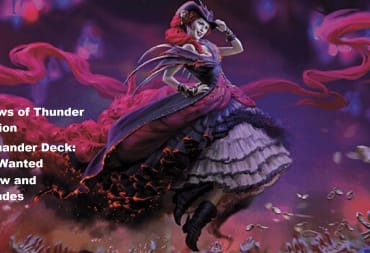Not many people played Binary Domain and it’s not particularly something people have missed out on. It’s a functional shooter with a number of twists on the standard formula, none of these are revolutionary but they do at least help it to stand out. It has a decent story also, well,actually just a cool premise that dabbles in some interesting territory - the core narrative and storytelling are actually a tad weak.
Binary Domain is a good game, but it is far from a must play. It has more than its fair share of problems and drags on for longer than it should. Once again, I don’t think you should run out and play it, what I do think is that it’s worth talking about.
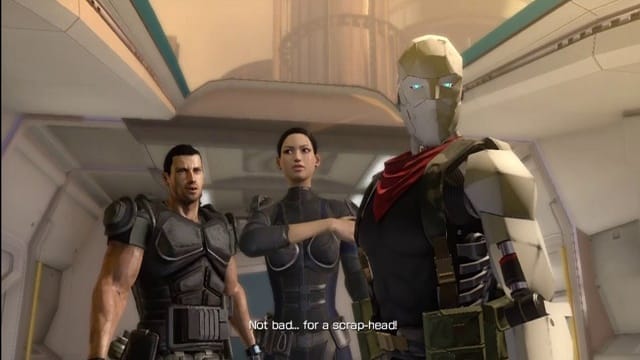
Perhaps the core of what makes Binary Domain so interesting is that it is a Japanese take on a traditionally Western genre. It’s a third person cover shooter à la Gears of War, a type of game that is hugely prevalent and popular in the West. These aren’t the kind of games you expect from Japan though; cultural differences have a huge impact on video game development and the result of this is something a bit different. It’s something you see to a different extent in Platinum Games’ spectacular Vanquish (that’s a wayside article waiting to happen!), which was so fresh and interesting. It combined a lot of Japanese sensibilities with a traditionally Western genre and the result was something outstanding.
Binary Domain is not something outstanding. It is very Japanese though, in the sense that it’s hugely distinct from the ‘Gears clones’ you see coming out of the West. At its very core it has the framework of your standard cover based shooter, but there is some weirdness around this - as well as the kind of design you expect from a Japanese title. Movement is always kind of awkward in these games (purposefully so), but it is more so in Binary Domain due to a focus on animations. Bosses (yes, there are bosses) almost feel like Monster Hunter foes, flailing around at you with reckless abandon whilst you try to avoid them witha limited move set, their visual state indicating their health. Unfortunately this move set isn’t enough.
That is when Binary Domain is at its worst. Many of the fights are cool in theory, but are ruined by clunky movement and cycles of getting knocked down and then hit again before you can get up. It’s a style of play that works in other genres, but it doesn’t work here due to what you expect from a third person shooter (and what you need). The enemies’ designs are awesome though; the big boss robots look really cool and break apart really nicely.
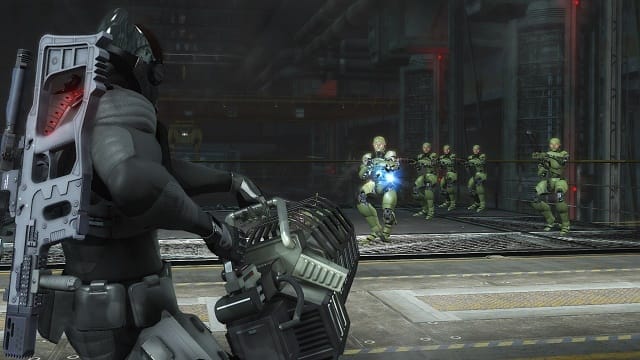
Breaking apart is one of Binary Domain’s best bits. The shooting is functional, but it is hugely accentuated by the impact of your bullets. You spend the whole time shooting robots, and these robots break apart as you shoot them. Armour flies off, legs fall to the ground and heads explode. This makes the act of shooting very satisfying, as your impact is immediately visible. They also use this quite cleverly, altering enemy behaviour due to their damage. If they lose a head they may carry on, but they won’t be able to aim and therefore often shoot their allies. This is a great touch and the way that bullets affect enemies does make a real difference. It’s not just methodically aiming at heads, you will want to shoot at different parts to disarm and slow down foes. It does feel like this could be taken advantage of more, as popping robots in the noggin is still really the best move. But your bullets smashing up your foes does counter one of the genres biggest issues, that of bullet sponge enemies. The enemies soak up some lead, but the visual destruction makes every bullet seem worthwhile rather than appear redundant.
Perhaps the oddest part of Binary Domain, and where the Japanese sensibilities shine through, is in the companion system. It’s a squad based shooter with a rag tag bunch of top secret government mercenaries (cue yawn), but it is made interesting by your interactions with your allies. Each companion has a meter which displays their loyalty to you. Do things they like, it goes up, do things they don’t… You get the picture… This manifests through gameplay - if you shoot well and don’t shoot them, they like it – but it is also greatly influenced by orders and conversations. You can order your squad around, the twist is that good orders (ones that are successful) will cause them to like you more and if they aren’t fans of you they won’t obey orders in the first place. This makes the influence system meaningful and gives it an illusion of importance. Ultimately it doesn’t matter though, as the game never takes advantage of these mechanics. You never really have to give orders or be tactical. On top of this, the AIs tendency to casually walk in front of where you are shooting, and decide to hate you a bit, makes that part of the system mildly frustrating.
The cool part is that interactions and orders are done via voice commands. You put your head set on, the game recognises a suite of words and you talk to it. If you press a button it shows you what responses it is looking for at that time and you pick one – verbally. It’s a really neat idea that makes interaction and ordering around more fluid and natural. You aren’t shifting through menus, you feel integrated into the game. It is weird though that the character never voices what you say, your voice is the stand in, but in cutscenes he’s a chatty bugger. There’s a disconnect that you get used to, but it’s still there.

The main issue is that the voice detection is bad. Maybe it just hates my refined British accent, but the amount of times I would repeat the same order or line with increasing frustration and volume fell beyond count. Even more annoying was when a companion would strike up a conversation, express an opinion you want to agree with but then the game wouldn’t recognise what I was saying.
“Agreed!”
“Agreed!”
“AAA-GREED!”
“AGREED!!!!"
“Stupid game….”
Of course, the game interprets that as, “disagreed”.
Despite the system being dodgy, it is a lot of fun. It’s really goofy and picks up all kinds of nonsense. I also liked it that when I exclaimed profanity due to frustration later on, the game would pick it up and my allies would wonder why I was swearing at them.
The final interesting part of Binary Domain is its insane story. It’s all about robots who don’t know they are robots and sweeping decision to kill all robots. It gets very melodramatic and goes to some brilliantly bizarre places. It takes a while to get going, and goes on for way too long, but there’s some cool wacky stuff. The problem is that it isn’t that well written, it doesn’t take full advantage of its premise and – as far as video game storytelling goes – it’s a real let down.
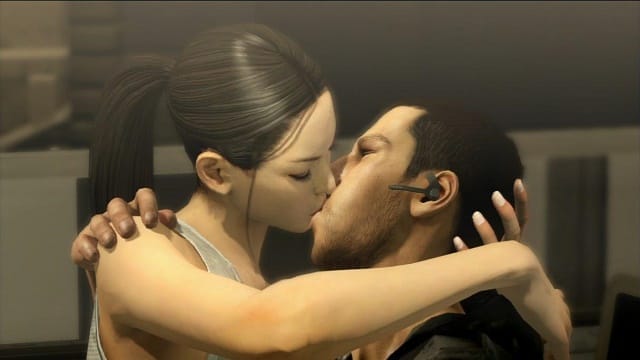
Binary Domain provides the perfect example of how not to take advantage of your medium. It tells a story completely alienated from its gameplay; yes you can agree with your companions, but these interactions are usually distinct from the main story anyway.
The narrative in Binary Domain never takes advantage of interactivity and feels completely separate from what you are doing. There’s some surface level discussion on the line between human and robot (and whether action against robots is moral or just ansomething for political gain) but all you do is shoot robots between cutscenes. The story is heavy-handedly told to you in little videos, then you just shoot your way to the next one. It’s really disappointing. The story is ultimately fine - in fact it’s a lot of fun - but it feels out of place and distant.
The problem is that this is a very story heavy game, in games where gameplay is the main attraction this kind of disconnects is more forgivable. Here the gameplay is robust, but underutilised. This makes it a road block to story segments rather than a part of the narrative, and makes its status as a game somewhat redundant.
Binary Domain is a super interesting game with a lot of ideas bubbling around in it. It’s not a Gears clone; it is doing its own thing. The problem is the game merely has interesting mechanics; it doesn’t actually take advantage of them. The core issue of Binary Domain is that so much feels unnecessary or inconsequential. It is a game with a lot of really cool potential that could have been a real cult hit, unfortunately it just can’t capitalise on the potential brilliance. It’s a fun game, worth playing if there’s nothing else on the horizon, but you can’t help thinking of what it could have been.
Have a tip, or want to point out something we missed? Leave a Comment or e-mail us at tips@techraptor.net
